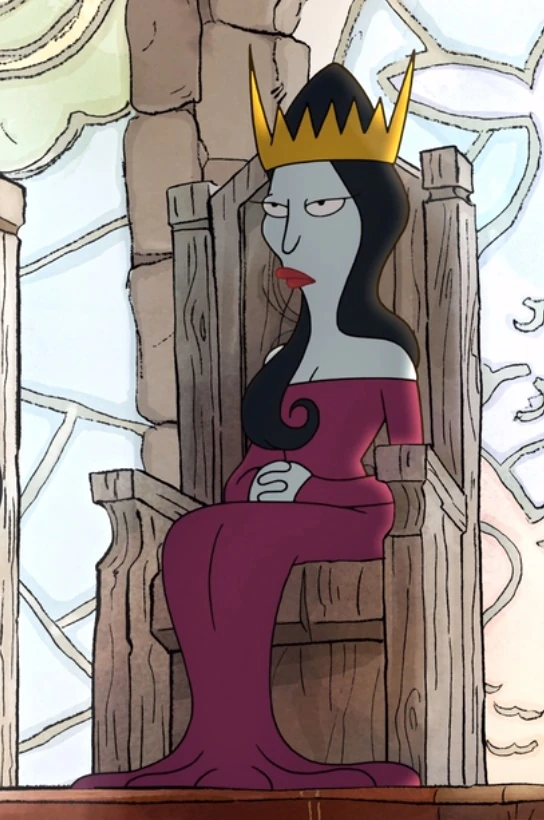 |
| Queen Oona from Disenchantment |
In a dramatic departure from blogging about the Simpsons, I'm blogging about Disenchantment, the latest Matt Groening cartoon series. This is Queen Oona, a fairly minor character (the wicked step-mother in this fairytale-inspired set of characters).
Queen Oona is from the neighbouring kingdom of Dankmire, and her accent is... European. Vaguely Russian, maybe? Kind of German? Anyway, whatever it's based on, the Dankmirian language clearly has what we call 'pro-drop', 'null subjects', or 'zero anaphora'. That means that in the right context, you can leave out a subject pronoun (this Spanish example is from Wikipedia):
Está completamente seco.In the example above, you can infer that the subject is he/she/it because the verb (está) has 3rd person singular agreement. From there, you have more or less as much information as if we'd just used the word it, and you use your normal contextual knowledge to fill in the referent, as with the English equivalent.
is completely dry
'It's completely dry.'
Oona said, in episode 6,
Is true.Shortly followed by
Or is?Both of these sentences would be totally grammatical in Oona's (let's assume Slavic) first language, where the word it can be left out. I don't know Russian so let's illustrate with Spanish again. This is the exact equivalent, and I think it's good:
Es verdad. O es?But the thing is, it made me laugh, and I think it was meant to. I don't know why. I came here thinking I had a good explanation: maybe because is is a clitic (a word that needs another word to lean on) in English, so this literal translation sounds just too unnatural? Maybe lack of familiarity with post-verbal null subjects, like in the question 'is (it)?' in this example? Another one to file under Things Someone Else Should (And Probably Has) Research(ed).